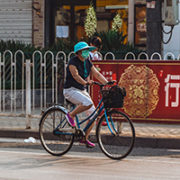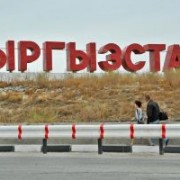Tag Archives | World Trade Organization
Economics, Governance and public sector management, Industry and trade, Regional cooperation and integration
 Economics, Environment, Industry and trade
Economics, Environment, Industry and trade
 Industry and trade, Regional cooperation and integration
Industry and trade, Regional cooperation and integration
 Industry and trade
Industry and trade

Impact of Retaliatory Trade Enforcement Actions on the World Trade Organization and Trade Governance

The international regulatory instruments in international trade boast a remarkable story of evolving sophistication. Their transformation from voluntary export restraint agreements showed that the world trade system was poised to keep pace with rapidly expanding trade ties and diversifying supply chains. To keep the reins on an increasingly dynamic global trade system, the General Agreement on Tariffs and Trade (GATT) sought to formalize instruments that would help keep trade balanced and fair by isolating international trade from government intervention, in alignment with the economic thinking of the period: neoliberal convergence.
International outsourcing, environmental costs, and welfare

In recent decades, amid the increasing trend of globalization, it has become prevalent in world trade that firms in some countries outsource intermediate and/or finished goods or services from other firms in foreign countries for the purpose of lowering production costs and increasing production efficiency.
A snapshot of e-commerce in Central Asia

In 2015, Central Asia made some important improvements in the environment for cross-border e-commerce: Kazakhstan's accession to the World Trade Organization (WTO) will boost commercial transparency, while the Kyrgyz Republic’s membership in the Eurasian Customs Union expands its consumer base. Why e-commerce? Two reasons. First, e-commerce reduces the cost of distance. Central Asia is the highest trade cost region in the world: vast distances from major markets make finding buyers challenging, shipping goods slow, and export prices high. Second, e-commerce can help pull in populations that are traditionally under-represented in export markets such as women, small businesses and rural entrepreneurs.
What Africa can learn from Asian supply chains

At this week’s 10th World Trade Organization (WTO) Ministerial Conference in Nairobi, Kenya, trade ministers are trying to advance 15 years of Doha Development Agenda talks to reduce trade barriers. The real issue, however, is whether African economies can follow East Asia's success in global supply chains amid “new normal" growth and rising inequality.


Search
Subscribe / Connect to Asia Pathways
Subjects
- Accelerating Progress in Gender Equality
- Addressing Remaining Poverty and Reducing Inequality
- Agriculture and natural resources
- Capacity development
- Climate change
- Economics
- Education
- Energy
- Environment
- Finance and Innovation
- Finance sector development
- Gender
- Globalization and Economic Stability
- Governance and public sector management
- Health
- Industry and trade
- Information and Communications Technology
- Infrastructure
- Making Cities More Livable
- Miscellaneous
- Population
- Poverty
- Private sector development
- Regional cooperation and integration
- Sanitation
- Social development and protection
- Strengthening Governance and Institutional Capacity
- Subjects
- Transport
- Uncategorized
- Urban development
- Video Blog
- Water
Recent Posts
- From Crisis to Resilience: The Evolution of the Banking Sector in Asia and the Pacific
- Tariffs on the Table: What Could Be Asia’s Next Move?
- Investing in Childcare a Win for Women and the Economy
- Flush and Flourish: Upgraded Toilets Can Transform Lives in Rural Asia
- New Ways for Climate Finance and Development in Asia and the Pacific




Recent Comments